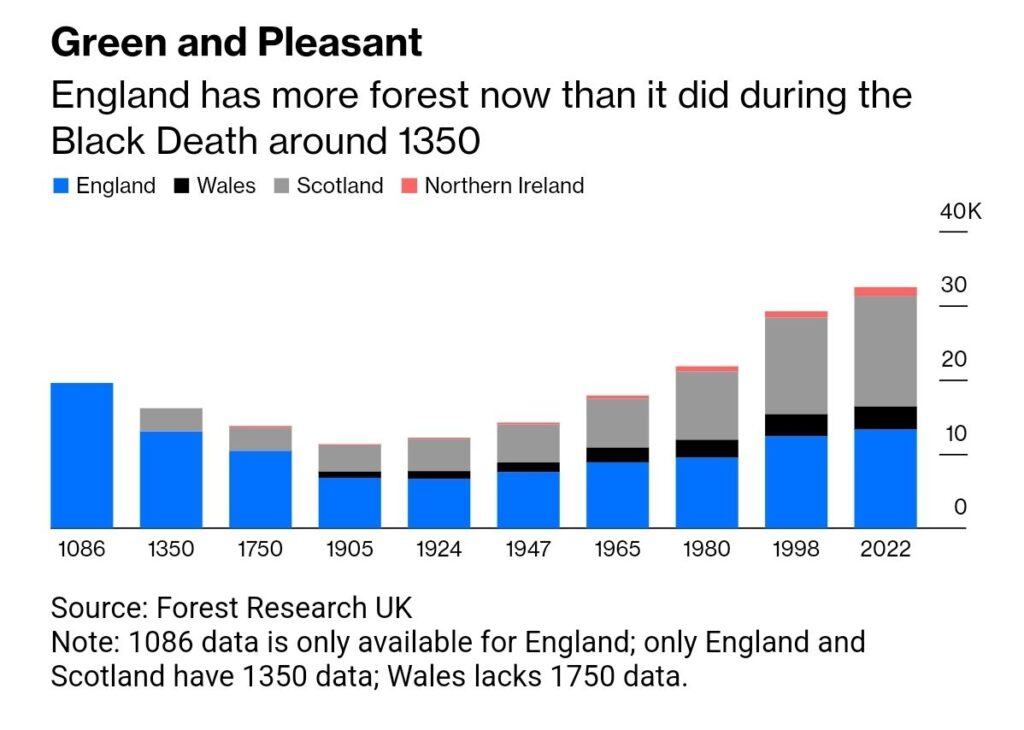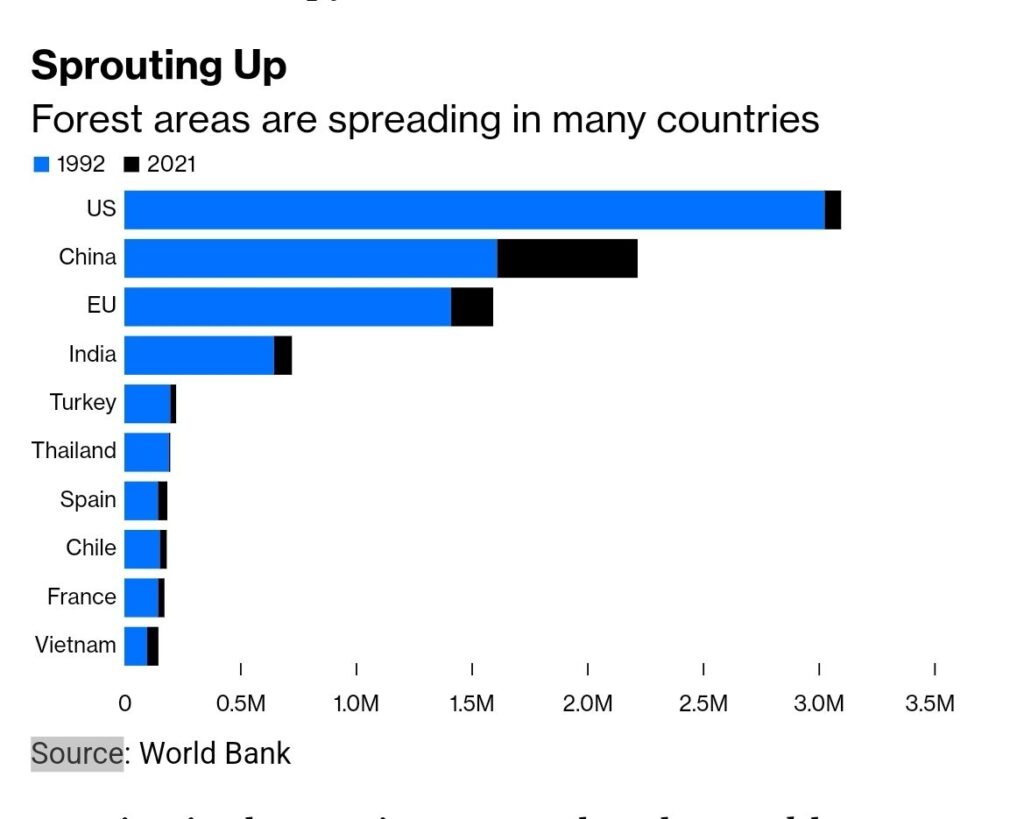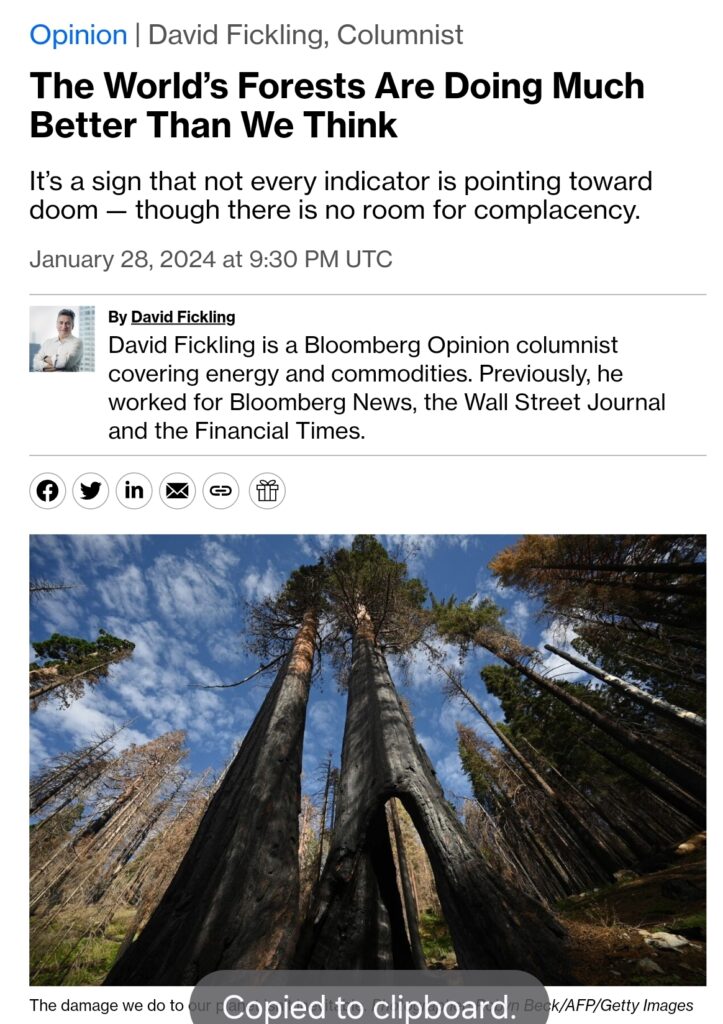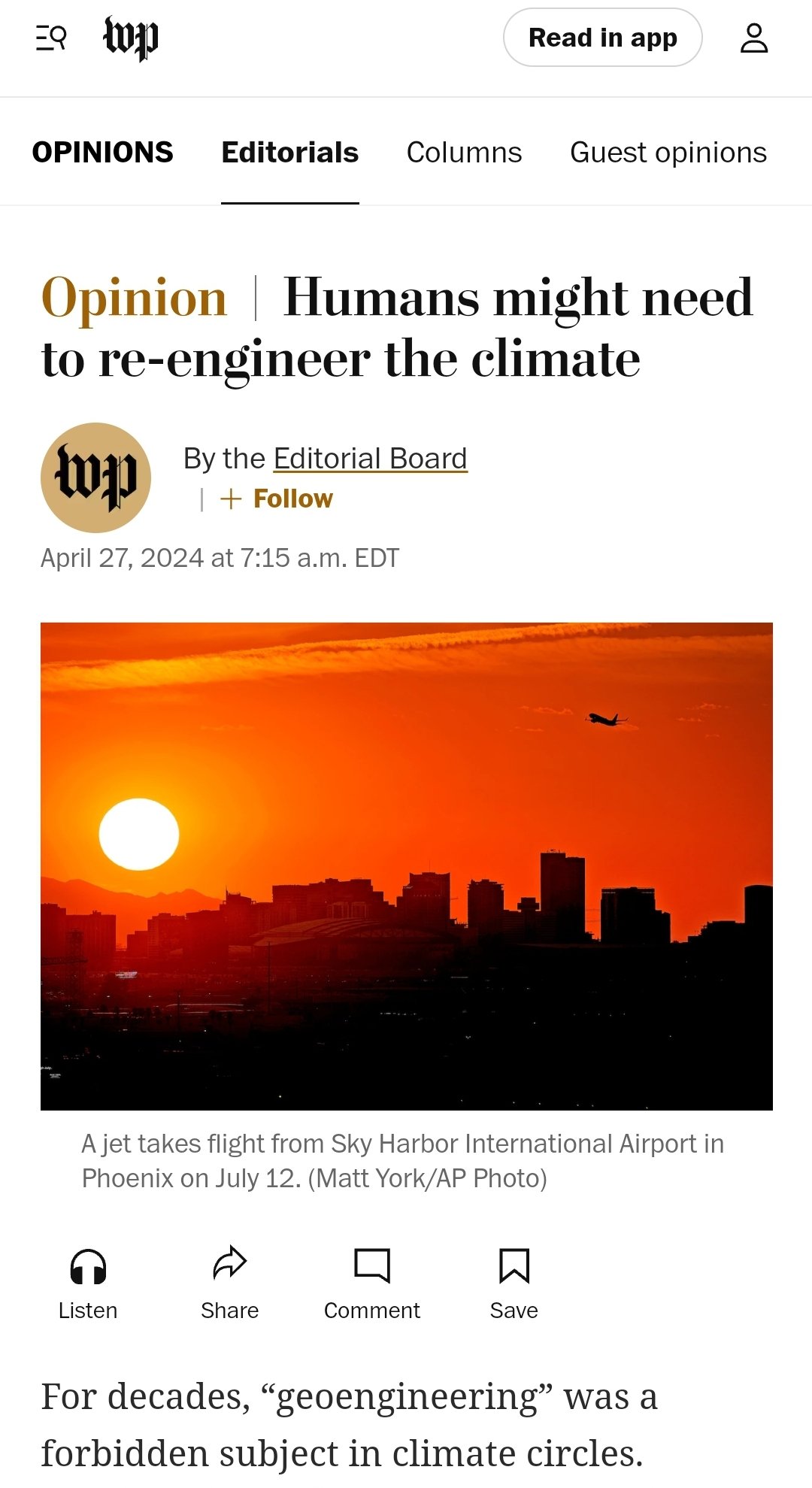David Fickling is a Bloomberg Opinion columnist covering energy and commodities. Previously, he worked for Bloomberg News, the Wall Street Journal and the Financial Times.
Excerpts: You might be surprised to discover, then, that many of the world’s woodlands are in a surprisingly good condition….
Take England. Forest coverage now is greater than at any time since the Black Death nearly 700 years ago, with some 1.33 million hectares of the country covered in woodlands. The UK as a whole has nearly three times as much forest as it did at the start of the 20th century.


…
It’s a similar picture in Scandinavia and Central Europe, where the spread of forests onto unproductive agricultural land, combined with the decline of wood-based industries and better management of remaining stands, has resulted in extensive regrowth since the mid-20th century. Forests cover about 15% of Denmark, compared to 2% to 3% at the start of the 19th century.
…
China’s forests have increased by about 607,000 square kilometers since 1992, a region the size of Ukraine. The European Union has added an area equivalent to Cambodia to its woodlands, while the US and India have together planted forests that would cover Bangladesh in an unbroken canopy of leaves.
…
Even tropical deforestation has slowed drastically since the 1990s, possibly because the rise of plantation timber is cutting the need to clear primary forests.
…
Remarkably, this may not be the first time human activities caused an expansion of the world’s forests. The devastating population declines caused by war and disease after the European colonization of the Americas may have caused a downturn in global temperatures between the 16th and 19th centuries, according to one 2019 analysis. With their populations reduced to about 10% of previous numbers, Indigenous people were no longer able to maintain agricultural systems based on clearing land with fire. As a result, 558,000 square kilometers of new woodlands grew, sufficient to lock away about 27 billion tons of CO2. …
The CO2 taken up by trees narrowly exceeded the amount released by deforestation.
…
Nor is global afforestation to date caused mainly by environmental imperatives. Indeed, in much of the world, it has been the rise of fossil fuels that turned the corner on deforestation almost a century ago, as industries turned to coal, oil and gas to produce heat and energy in place of wood.
…
Still, we should celebrate our success in slowing a pattern of human deforestation that’s been going on for nearly 100,000 years. Nothing about the damage we do to our planet is inevitable. With effort, it may even be reversible.





